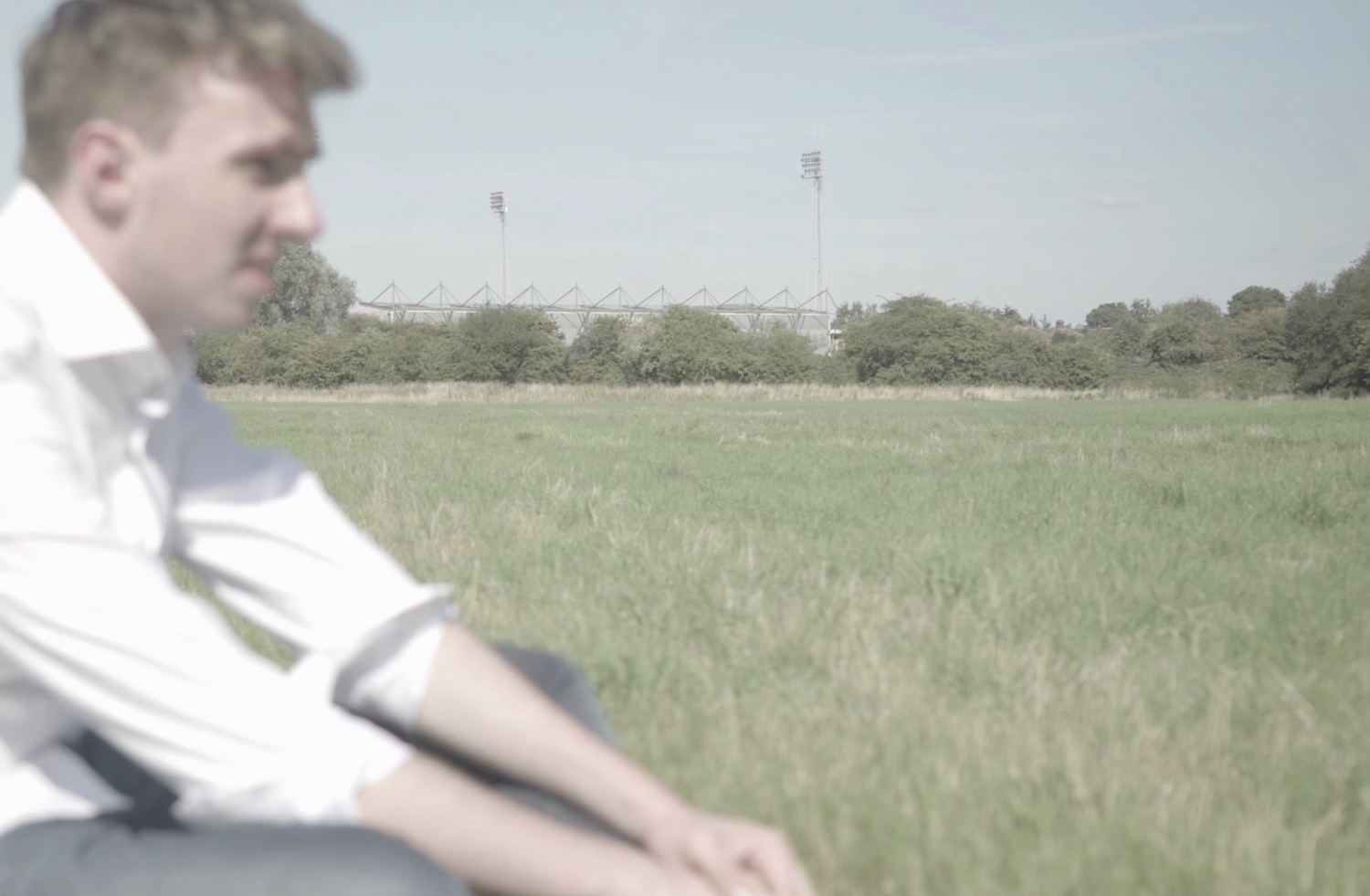When I think of Yorkshire, I’ll always think of music. From Britpop bands like Pulp to our beloved indie-rock quartet Arctic Monkeys, Yorkshire houses some of the greats. Coming from such a musically rich area, it’s no wonder why Aidan Tulloch, Christ’s English student and genre-bending musician, aims to pay homage to the hazy summer nights spent in his hometown in North Yorkshire in his latest EP, Somewhere Without Lights. The five-track EP collides the worlds of indie rock, electronica and classical, as its complex lyricism creates a wistful desire in the listener to experience a vision of youth’s most powerful and formative moments. From the influence of “northern post-industrial singalong festival bands” to his desire to shun genre-labelling and embrace organic contemporary alternative music, I spoke to Tulloch over the now-classic Zoom call, and he gave me an insight into his production process, the personal experiences that he draws from and his defining musical moments.
A record infused with a mix of genre, narrative and authenticity would, it seems, require an immersive producing process. Tulloch says he spends a significant amount of time “sitting there with headphones or speakers, playing [tracks] over and over again, muting different instruments” or experimenting with “the vocals taken out, or with just the bass”. It’s instinctive to Tulloch to “listen to [the record] over and over again”, as he breezily remarks “I’ve probably heard each [track] hundreds of times”. This dedicated approach truly surfaces throughout the EP: from the balances to the volume, to the confusingly contrasting-yet-flowing nature of the tracks, it just works. Such a process would seem not only time-consuming but meticulous, yet Tulloch enjoys and feels inspired by it. “I love it so much, it’s such a fun thing to do”, he says, “because I’m always learning as well”.
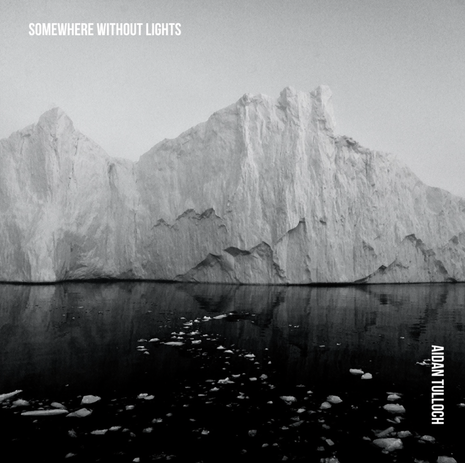
The element of learning and continually evolving as an artist lies at the heart of this record, a record that builds upon the foundations laid by Tulloch in his previous EP Figures in a Storm. “Every track that I work on is going to involve a new kind of skill or a different process to get to grips with”, comments Tulloch on the challenges posed by constantly developing and bettering his musical endeavours. “It might take me months, and I might have to leave it and go back to it or get a friend involved and learn from them as well”. Despite the highly personal element of the project, it stems from an oftentimes collaborative effort: “If you listen to something so many times you get familiar with it, and so it sounds right even though it might not to someone else”. This is where other musicians come in, particularly Luke Coupland, who Tulloch remembers playing music with “pretty much every afternoon at school”. The pair are “able to share tips and tricks with each other, or share bits of software, especially if he’s got something that I want to use, and vice versa”. It’s an important component of the producing process that “really helps it”, says Tulloch, despite being “more solo than a lot of artists”. “I take specific bits to other people once I’m happy with the structure, saying “this line isn’t working, let’s sing it together”, and we’ll work something out”, notes Tulloch, but emphasises that “the actual structures and ideas, for now anyway, are things that I like to come from me”.
For me, a highlight of this record is Tulloch’s lyricism: teetering between the familiar and the intimate, it proffers a submersive listening experience. “Lyrics I’ll always do myself”, he says - although noting that “the chorus for ‘Song for Armageddon’ was very much a collaborative effort with another great Cambridge songwriter” - which feels apt considering his English student status, and his love of poetry in particular. Tulloch’s lyrics materialise from highly personal ground: when discussing his influences, he notes how the personal is bound together with the literary. Whilst literature inspires “the structure of writing and putting words together,” Tulloch emphasises that lyrics “definitely [have] to be personal”, especially considering that “people love to go to music when they want to relate to someone, and they want to relate to someone who they think is being authentic”. And authentic his lyrics are, with standout track ‘Goalposts’ featuring the lines: “He thinks we’re still sixteen/ it’s hard enough between/ all the signs and the scenes/ oh have you seen they’re so obscene/ I can’t believe”. Tulloch’s sibilance takes us on a serpentine journey through his youth, undeniably creating a sense of relatability and honesty.
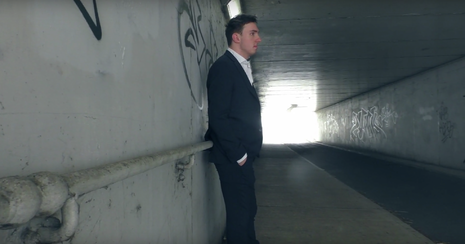
An element of this record that particularly intrigued me was its classification as “contemporary alternative music”, a phrase I hadn’t stumbled across before. It led me to question the way Tulloch approaches genre, and whether he feels it to be confining rather than freeing. “Nowadays, the way genre functions is by people wanting to find something which is stylistically relevant to them in that particular moment”, he notes, indicating that genre acts as a tool to make seeking out a specific kind of music easier and more accessible. For Tulloch, if genre has an aesthetic element to it, he would usually search for “indie, which is where I come from”, yet tries to steer away from fixed labels. Tulloch notes the importance of London’s multi-arts venue the Barbican Centre in inspiring this, as “they showcase classical and pop and other genres, and on their website they use genre categories, with one being contemporary music”. Tulloch describes this broad-ranging category as “anything from a brand new and really exciting jazz pianist playing in London as part of a world tour, to the next great minimal electro duo”. Because “there’s so much great music now which isn’t conforming to the idea of a genre”, Tulloch aimed for his record to take a similar stance. This sentiment undeniably rings true: from the indie feel of ‘Goalposts’ to the electronica-infused ‘Song for Armageddon’, Somewhere Without Lights evades genre.
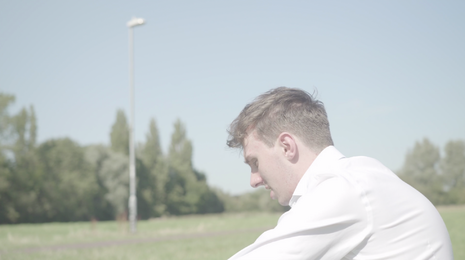
While the entire EP is a triumph in its own right, one song in particular struck me when initially listening. ‘Santa Susanna’ is an eerily beautiful, stripped-down ballad with raw vocals, reminding me of an understated B-side that manages to rival an artist’s entire catalogue. The song is a palimpsest of soft vocals, a melancholy piano and hazy textures. “I knew there had to be something like that on [the record]”, says Tulloch, despite being “nervous because the vocal line on that song had an off-the-cuff quality”. Tulloch remembers recording the vocals by the TV one evening in a spur of the moment hit of lyrical inspiration. “I came back the next day and for the DIY atmosphere I wanted, I thought ‘why don’t I just use these vocals?’” Even though he says they’re “not studio quality”, they made the song seem “casual”. I was intrigued to learn that the piano is from a sample pack where “this really skilful sound designer went and bought a hundred year old piano from a charity shop and recorded every key”, which perhaps explains why the piano on the track feels so raw and uncontrived. A point of inspiration for this song came from Tulloch’s travels, as he became enamoured with the feeling of “anonymity that comes from when you’re in a new city or a hotel and no one really knows you”. He chose to overlay a “field recording of a corridor”, which certainly gives it that beautifully unvarnished quality, with the echoes of every day life pairing perfectly with the lamenting vocals.
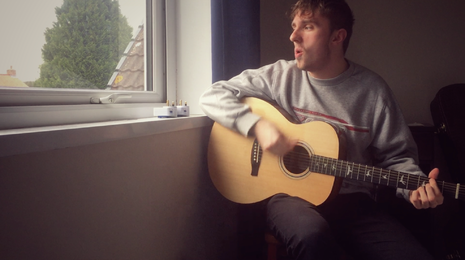
Juxtaposing ‘Santa Susanna’ is ‘Song for Armageddon’, an exhilarating, EDM-inspired track. “I have good memories sunbleached by summer EDM in 2016”, comments Tulloch nostalgically, as he thinks back to artists like Avicii and Martin Garrix that dominated the EDM scene, churning out floor-fillers that then felt inescapable, but now transport us back to summer nights gone. ‘Song for Armageddon’ features an immense drop that’s drawn from this specific time in EDM, paying homage in a burst of euphoric energy. Despite the drop synth “changing a hundred times”, Tulloch managed to strike the perfect anthemic note.
‘Milk and Orange Juice’ is the opening track of the EP, and feels bound with ‘Song for Armageddon’ in its energizing quality. Plus, the two are entwined more than the listener might initially think, as Tulloch reveals that “the lead synth came from a vocal chop that at the time was ‘Song for Armageddon’”. It’s innovative, and derails the use of a traditional synthesiser, while showcasing the deeply personal element to Tulloch’s music, even through an electric dance-inspired track.
The culmination of the EP comes in the form of its title track, ‘Somewhere Without Lights’. Tulloch notes that the EP has been received as “cinematic”, and there is no better exhibition of this than in ‘Somewhere Without Lights’. Having released an instrumental EP last year, Tulloch is well-versed in composing instrumental pieces, and this track displays that. “That actually was a soundtrack to a play at Corpus that one of my friends directed and asked me if I would compose a bit of piano”, he remembers, “so I did because I like the excuse to do something instrumental”. It started off as “three separate sections”, yet Tulloch later decided that “actually, it works well as one piece that just evolves”. This track is so successful in part due to its experimentative quality: not only does it work “in 5/4 time”, therefore subverting from the regular time signature of 4/4 but, as a daydreamer, it’s the perfect composition to fully immerse yourself in. It’s spectral violin is paired with a gentle, enveloping piano, fostering a calming atmosphere.
“When I look back at two years of Cambridge, I can look at them in terms of the music I’ve released so far, and that’s a great narrative of what’s been going on”, comments Tulloch sentimentally. Despite being a mere listener, I can say I definitely share in the nostalgia: from being transported back to my own youth, the record perfectly preserves those definitive moments in our lives, in a dazzling array of genre, lyricism and sheer energy. Tulloch feels as though “it’s my debut, even though it’s not”, and I understand why, considering it’s highly personal nature. He says a debut should be “raw and real and not perfect” and it’s true, Somewhere Without Lights is undoubtedly raw and real.

